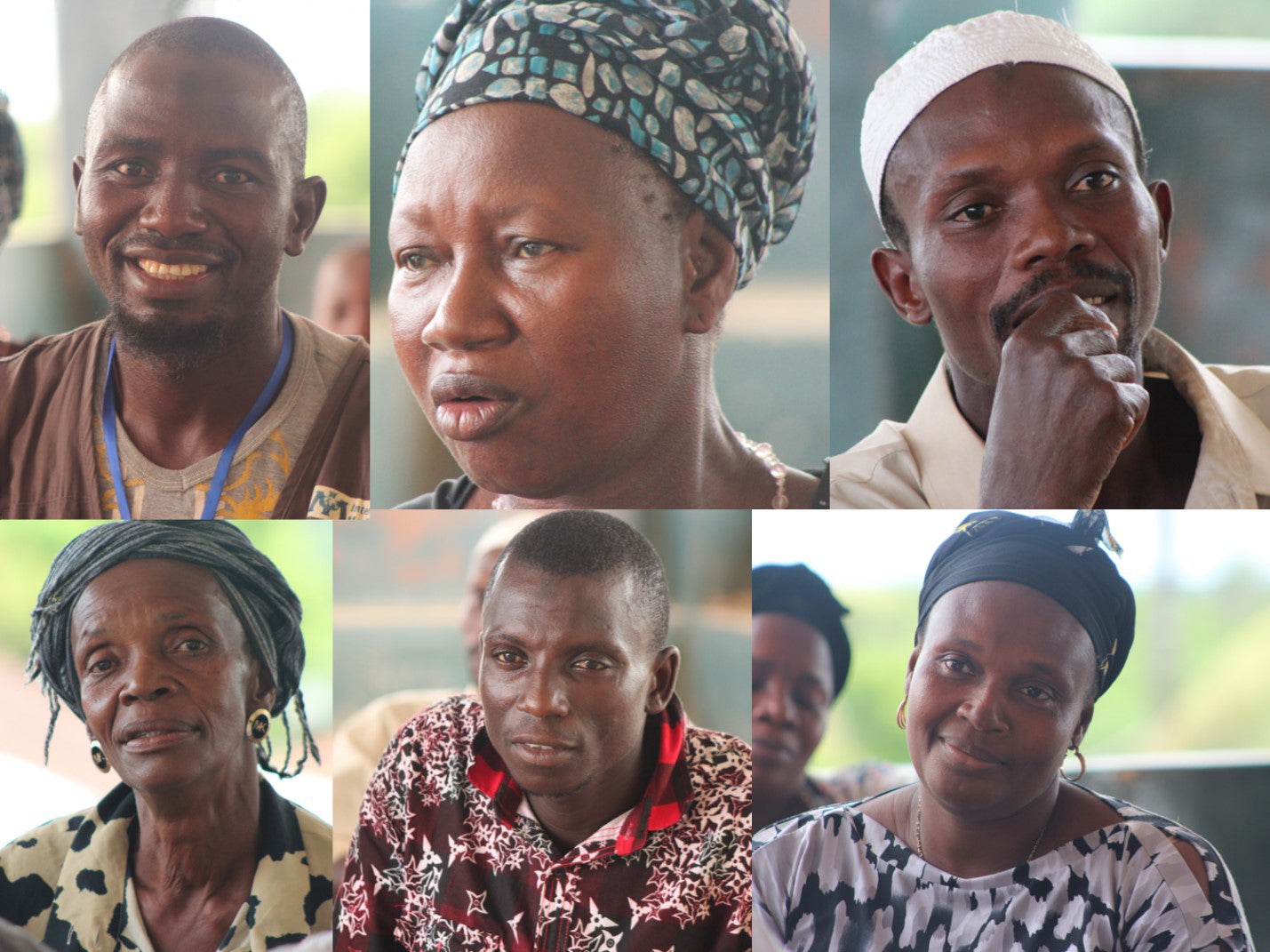
When was the last time you participated in a community and worked together to reach a common goal? Communities across Sierra Leone are doing just that.
Sierra Leone created 19 Local Councils to deliver efficient services to communities across the country. The World Bank has supported the Government of Sierra Leone’s efforts to establish a decentralized government system to work with local governments through the Decentralized Service Delivery Program I and II (DSDP I and II). DSDP I placed the framework for decentralized service delivery and social accountability. Building on this, DSDP II expanded to deliver decentralized services in health and sanitation, education, rural water, and solid waste management to the citizens. The project supported grant transfer to Local Councils for service delivery as well as capacity building and citizen engagement in monitoring service delivery and fostering community resilience.
And, it paid off.
DSDP II established Community Monitoring Groups (CMGs) to liaise between communities and local councils, which are responsible for delivering services to the communities. The CMGs monitor project implementation and help ensure that the services delivered respond to community needs.
Citizens Safeguard Water Well in Bombali District
The CMGs in Maboleh and Mapaki communities in Bombali District, located in the northern part of the country, gather weekly to discuss issues that arise. Each community has a water well and water is usually the main topic of discussion, since it is at the center of their community, both physically and emotionally.
The water well has been rehabilitated through support from DSDP II and is maintained through a set of rules established by the CMGs. These rules are discussed in communities and presented to the elders to get their blessings before implementation. These rules vary by community, including the penalties for breaking rules. Anyone who breaks them will be fined 5,000 Le (USD 0.65 cents) in both communities.

For example, in Maboleh, well users must wear a head cover so hair would not fall into the well, clothes washing is prohibited near the well, and slippers must be left outside the well area to avoid unsanitary contamination. Sanitation is a priority in the communities and to stay healthy, everyone must follow these rules. In Mapaki, any fines collected as well as 2,000 Le (USD 0.25) monthly water service fee are used to repair and maintain the wells and pipes.
In Mapaki, DSDP II rehabilitated one water well and water pipes to help ensure clean water and easier access for the communities. Water is scarce and one water well with three taps has to serve 2,000 community members. Sometimes there isn’t enough water to reach the second tap when the first tap is being used. The community members go to the first tap to ensure their family gets enough water.
In Maboleh, DSDP II has helped rehabilitate one water well serving several households and the neighboring primary school. Each family can fetch one “rubber” (bucket) of water every day. At the time of my visit, the water level was very low since it hadn’t rained despite the rain season and only four to five “rubbers” can be filled each day. Ya Sama Turay, an 80-year-old member of the CMG in Maboleh, who’s called “Mame”, volunteers to clean the water well every morning. It is her way of giving back to the community.
Citizens Value Education and Health Services in Tonkolili District
As part of the project, council members, community members, and school staff in Tonkolili District are encouraged to have meetings and assume leadership roles to implement health and education projects.
The first female chairperson of the district puts a premium on education because she believes it will lead to a prosperous nation. In her view, the district will not be transformed if the people are not educated. When we met her, she said, the project “is a step in the right direction.”
In Magbass community, the CMG is formed around the rehabilitation of a primary school. The group meets regularly to discuss progress and to mobilize community support for improving education.

In Mabai community, the CMG monitors the delivery of health services at the community clinic. Through word of mouth, surrounding communities now know about the high standard of service available at the Mabai clinic. It’s small but accommodates everyone who needs it. Four visiting nurses and two residential nurses are always on their feet to assist.
Martha Fornah, 41 years old, is one of the residential nurses living in the clinic. She knew she wanted to become a nurse at a very young age. Why? “To save lives,” she says. At the clinic, she can pursue her aspiration to take care of people and provide health services in any way she can.
While writing this blog I asked myself the question that I started with—When was the last time you participated in a community and worked together to reach a common goal? For me, it’s been a long time. Visiting these communities made me realize how important it is to actively participate in a community and work together as a team. If being part of a working group might take a lot of your time, maybe responding to a 10-minute survey or simply providing feedback to the community chair will suffice. What’s the point of being part of a community if you don’t speak up and participate? This project showed me that when citizens lead a process to improve services in a community everyone benefits.




Join the Conversation